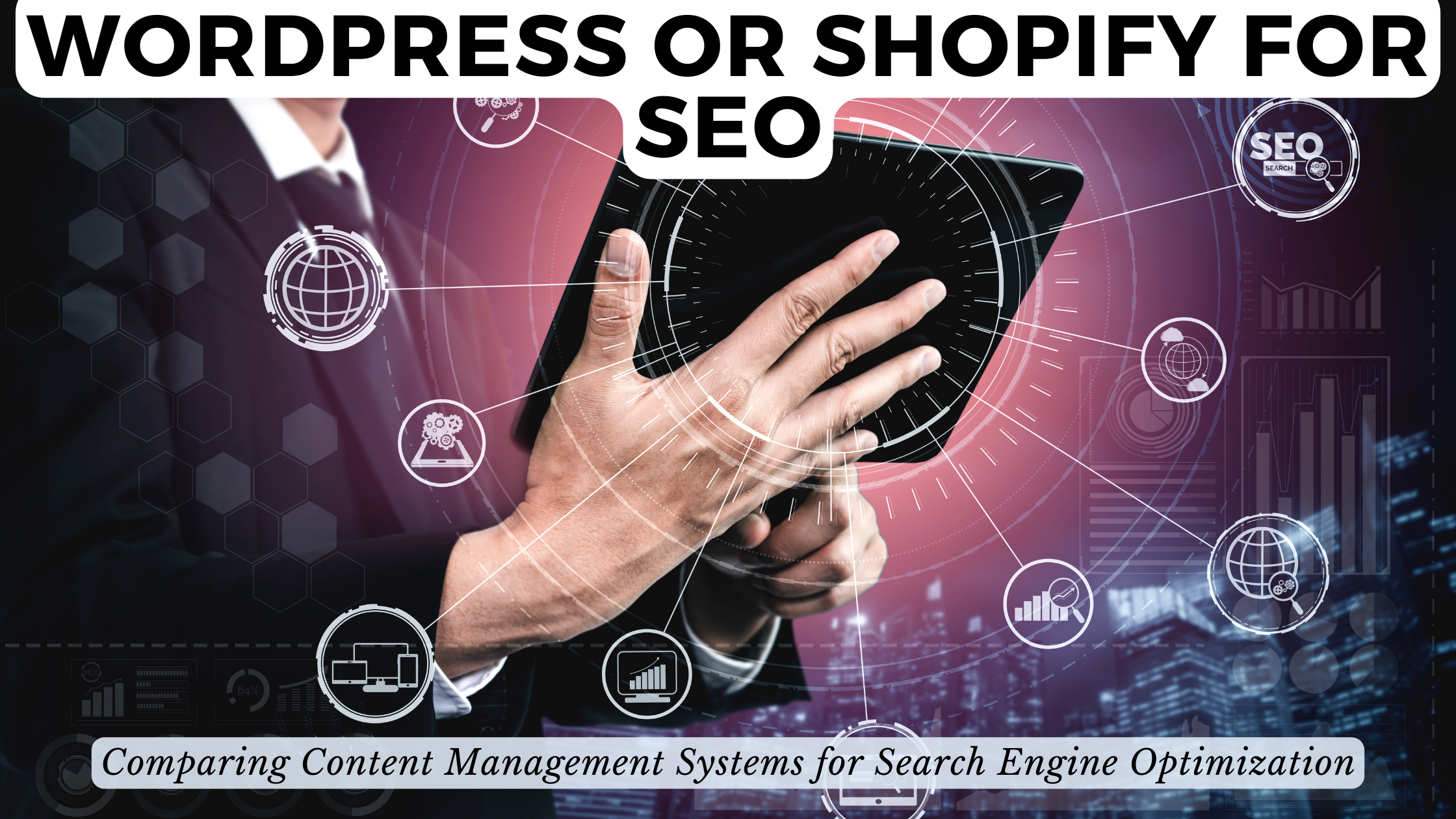WordPress or Shopify for SEO: Comparing Content Management Systems for Search Engine Optimization
- WebOps Platforms Bug Tracking & Feedback Software Web Development & Design


WordPress or Shopify for SEO: Comparing Content Management Systems for Search Engine Optimization
Selecting the right Content Management System (CMS) is crucial for maximizing your website’s Search Engine Optimization (SEO) potential. In this comprehensive article, we explore the intricacies of using WordPress and Shopify for SEO, with a word count of 1271.9112595956. By answering the key question of which CMS is better for SEO, we aim to provide detailed insights and solutions to guide businesses in making an informed decision.
Understanding SEO Capabilities of WordPress
WordPress, renowned for its flexibility, offers a myriad of SEO plugins and customizable features. From optimizing meta tags and permalinks to creating SEO-friendly content, WordPress empowers users to have granular control over their site’s SEO. We delve into specific functionalities and plugins that make WordPress a powerful ally in the quest for better search engine rankings.
Shopify’s SEO Strengths and Limitations
Shopify, a popular e-commerce platform, has its own set of SEO strengths and limitations. While it simplifies the SEO process for e-commerce sites, certain restrictions exist compared to the versatility of WordPress. This section provides a detailed analysis of Shopify’s SEO capabilities, shedding light on its suitability for different business models.
Is WordPress or Shopify Better for SEO?
The question of whether WordPress or Shopify is better for SEO is multifaceted. Factors like website type, business goals, and technical expertise play a crucial role. We compare the two CMS platforms based on SEO criteria such as site speed, mobile-friendliness, and content optimization. The goal is to guide readers in making an informed decision aligned with their specific SEO needs.
Relevant SaaS Products for SEO Enhancement
To address the query “Is WordPress or Shopify better for SEO?”, here are 5-10 relevant SaaS products that complement both platforms in enhancing SEO efforts:
- Yoast SEO – A powerful SEO plugin for WordPress, aiding in content optimization and site analysis.
- Rank Math – Another WordPress SEO plugin offering advanced features for content optimization and schema markup.
- SEO Image Optimizer – A Shopify app focused on optimizing images for better SEO performance.
- Plug in SEO – Shopify app providing insights and recommendations for improving SEO.
- Google Analytics – Essential for both platforms, offering insights into website traffic and user behavior.
Conclusion and Subscribed.FYI Integration
In conclusion, the choice between WordPress and Shopify for SEO hinges on various factors. Seamlessly integrate this knowledge into your broader SaaS subscription stack management with Subscribed.FYI. This platform empowers users by simplifying decision-making, enhancing productivity, and offering a centralized hub for comparing and managing SaaS tools.
Subscribed.FYI Deals is instrumental, providing free member-only deals on 100+ SaaS tools. Sign up to unlock savings totaling $100,000+ per year, offering an economical solution for managing your subscription stack. Effortlessly track, monitor, and make informed decisions with Subscribed.fyi’s ultimate subscription management solution.
Explore the platform’s centralized hub where you can access comprehensive information about SaaS tools, compare features, pricing, and user reviews. Subscribed.fyi caters to the diverse needs of freelancers, agencies, and teams, offering insights and facilitating informed decisions about SaaS tools.
Relevant Product Links
- Yoast SEO
- Rank Math
- SEO Image Optimizer
- Plug in SEO
- Google Analytics
- Subscribed.FYI
- Subscribed.FYI Deals
This detailed guide concludes our exploration of WordPress and Shopify for SEO. By incorporating these insights and leveraging Subscribed.fyi, businesses are well-equipped to enhance their SEO strategies and navigate the complexities of the SaaS landscape.








